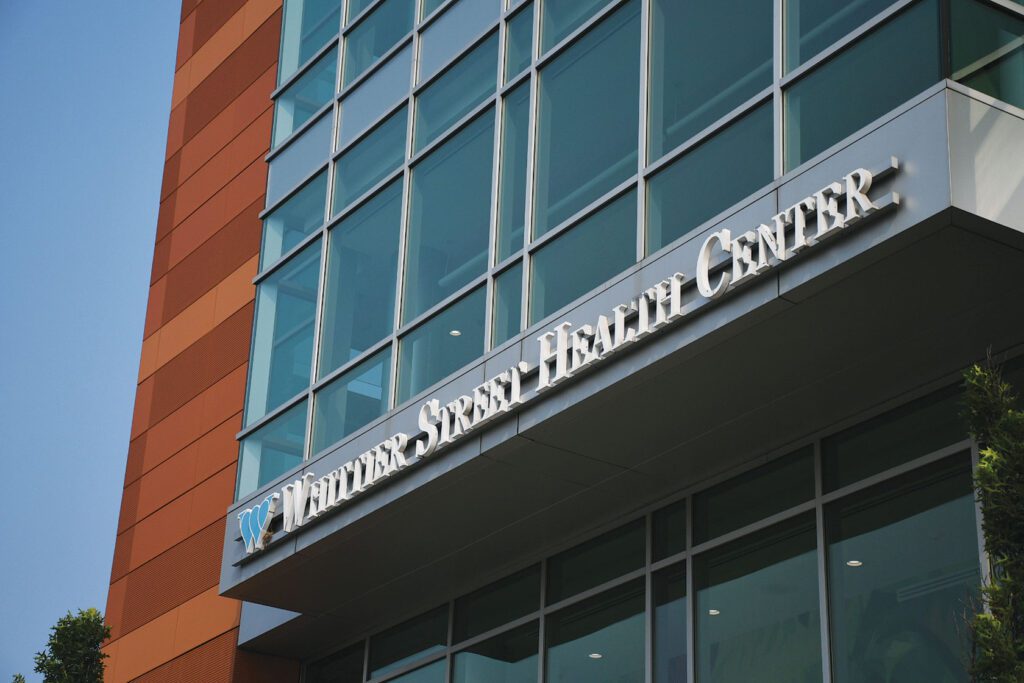Health centers urge residents to get their flu and COVID shots
Vaccines are available to fight several respiratory diseases

Officials at Boston’s community health centers, taking their message deep into the neighborhoods, are encouraging residents to get vaccinated as flu season begins —and before they get sick.
They are urging residents to get the annual flu vaccine, newly approved COVID-19 shots or the respiratory syncytial virus vaccine for older residents and infants.
“The best way to stay healthy is prevention,” said Cyril Ubiem, who heads the COVID-19 and infectious disease teams at Harvard Street Neighborhood Health Center.
People should get vaccinated as temperatures drop and the holidays approach, said Melissa Leaston, director of nursing and infection control officer at Whittier Street Health Center.
“Now is the time to protect yourself so when you are at those family gatherings, you’ve added a measure of safety for you as well as your loved ones,” Leaston said.
The vaccinations help decrease the severity of the disease and reduce spread.
“We often look at vaccines as a way that we care for each other,” said Renee Crichlow, chief medical officer at Codman Square Health Center in Dorchester. “Reducing the spread of viruses within the community helps keep us all stronger, and it protects our most vulnerable.”
With the release of an RSV vaccine in May, this year marks the first time that vaccinations for all three major respiratory viruses — flu, COVID-19, and RSV— are available in the United States.
“Staying up to date with these vaccinations is the best way to prevent serious complications and hospitalization from respiratory viral illness, which is important for everyone,” said Bisola Ojikutu, executive director of the Boston Public Health Commission, in a statement.
Community health centers are focusing efforts on getting the vaccines out into neighborhoods.
For instance, Whittier Street operates mobile health care units where residents can get vaccinated. They can also go to the main clinic in Roxbury. Leaston recommends making an appointment. They can get vaccinated at churches and other faith-based organizations as was possible during the pandemic.
“We’re getting out into the community, getting to our elder population and just … making sure that people are aware of what’s going on,” Leaston said.
Ubiem said Harvard Street has been using social media and on-the-ground outreach to let people know that their clinic is open for vaccinations five days a week.
Codman Square Health Center plans to run nursing vaccine clinics, Crichlow said. Residents can see their primary care physicians about getting the shots.
The new COVID-19 vaccine from Pfizer and Moderna were approved last month. An updated Novavax shot was approved earlier this month. The vaccines target a subvariant of the Omicron strain of the disease.
The vaccines come as Boston sees an increase in hospitalizations for the disease and concentrations of the virus in wastewater tracking, matching expected seasonal trends as the respiratory viruses generally spread more in the later year.
“Throughout the fall and winter, the viruses that cause respiratory disease circulate widely in our communities,” Ojikutu said in her statement. “We anticipate that cases of respiratory viral illness, including COVID-19, will continue to increase throughout the fall and will peak in the winter. Hospitalizations may be high this season and cause similar strain within our hospitals similar to last year.”
Leaston said she’s encountered hesitancy around the COVID-19 vaccines that hindered earlier vaccination efforts, but that reluctance has decreased.
She said some people see lower infection rates as an indicator that they don’t need to get the vaccine right away but encouraged people to get protected.
“This is the time to get it, when you’re not sick,” Leaston said.
Residents with reservations about the vaccine should speak with their primary care provider, Crichlow said.
“We want them to feel it’s totally safe and reasonable for them to come and have those conversations directly,” Crichlow said. “Their questions and their concerns are valid, and we want to make sure that we can address them.”
Health care officials also recommend vaccination against RSV, another virus that is often no more harmful than a cold but could be more dangerous for patients.
Infants under 6-months-old, older adults and people with weakened immune systems are at greater risk, said Ojikutu.
Cost should not be a barrier for people seeking vaccination, health care center staff said.
The new COVID-19 shots and the annual flu vaccine are free with most medical insurance.
The new RSV vaccine is covered by Medicare Part D, though others may have to pay out of pocket.






